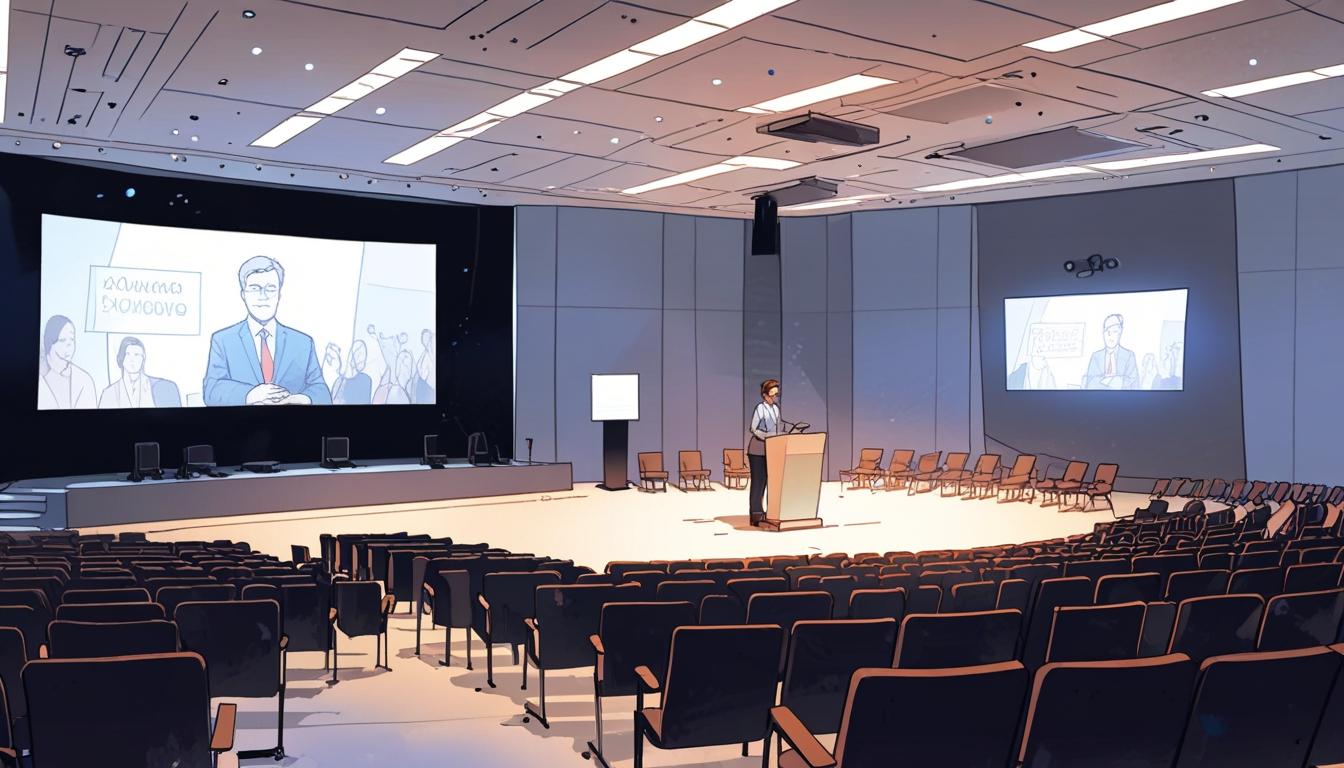HSBC is contemplating the possibility of abandoning physical annual general meetings (AGMs), an institution long associated with shareholders gathering in person to participate in votes and raise concerns directly with company executives. This consideration by HSBC reflects a broader industry trend that questions the continued relevance of physical AGMs in the modern investment landscape.
Traditionally, AGMs have been seen as a forum where shareholders, often including retirees, attend physically to vote on matters like executive remuneration and equity issuance. However, much of the voting is now conducted electronically prior to the meeting. The rise of index investing has centralized share ownership among a few major asset managers such as BlackRock, Vanguard, and State Street. These three firms collectively wield significant influence over major indices including the FTSE 100 and the S&P 500. While efforts are underway to increase the scope of investor participation, particularly through pilot schemes like BlackRock's initiative for certain investors in its $554 billion iShares Core S&P 500 ETF, many decisions ultimately rest with institutional hubs and proxy advisory firms such as Institutional Shareholder Services and Glass Lewis.
The growing influence of activist investors, who hold substantial stakes in companies, further shifts corporate governance activities away from the traditional AGM setting. These investors can push for changes, such as proposing new board members or supporting share buybacks, well in advance of any meeting. Consequently, physical AGMs are increasingly seen as the domain of retail investors and activist groups who attend to press corporate executives on social and environmental issues. In Japan, the phenomenon of "sokaiya"—professional hecklers hired to disrupt or protect meetings—has affected AGM scheduling, leading to clustering of meetings within a single week to manage disruptions.
In the UK, there is evidence suggesting waning shareholder interest in attending AGMs in person. This declining appetite aligns with reports of diminished participation and enthusiasm. Marks and Spencer’s unsuccessful attempt to move away from physical AGMs post-pandemic illustrates the challenges in abandoning traditional formats. Nonetheless, companies like the pharmaceutical firm AstraZeneca are experimenting with digital-only meetings, signalling a shift towards virtual engagement. Regulators in the UK are currently reviewing policies related to AGM formats, reflecting ongoing debate about the best way to balance shareholder rights with evolving corporate practices. Meanwhile, in the United States, nearly 30 percent of companies now hold virtual-only AGMs, according to data from Computershare.
Despite these trends, there remain arguments in favour of maintaining physical AGMs. They provide executives with the opportunity to engage directly with individual shareholders, offering a form of immediate feedback and a chance to address concerns personally. Even confrontations from shareholders with relatively small holdings can serve as a form of inexpensive market research. For company leaders, enduring the occasional hostile shareholder or disruptive event is considered part of the role.
The Financial Times is reporting on this shift, highlighting how traditional corporate rituals are adapting in the face of modern investment practices and technological advances. The developments at HSBC, alongside moves by other companies and regulatory reviews, illustrate the evolving nature of shareholder engagement and corporate governance in today’s financial markets.
Source: Noah Wire Services
